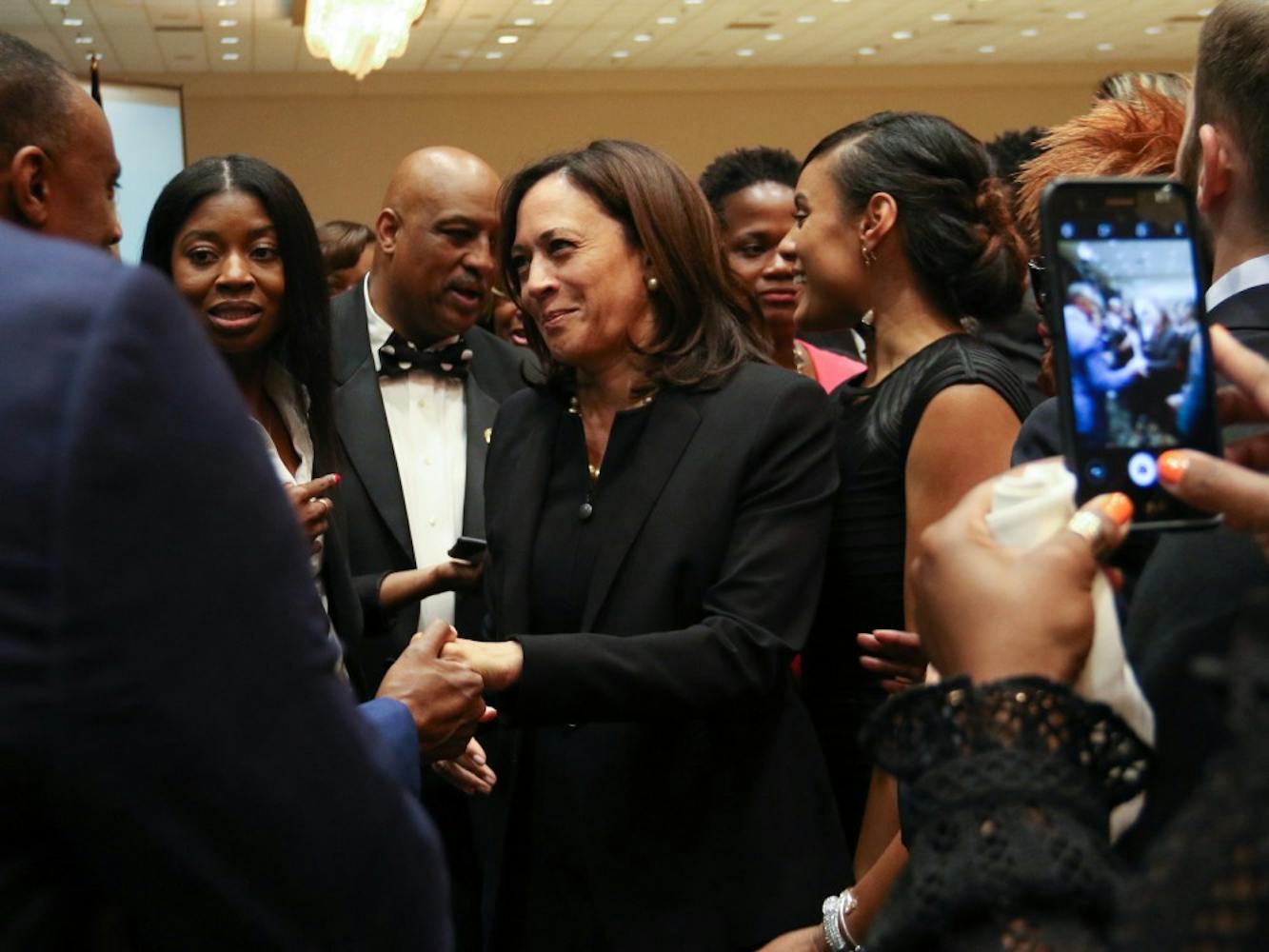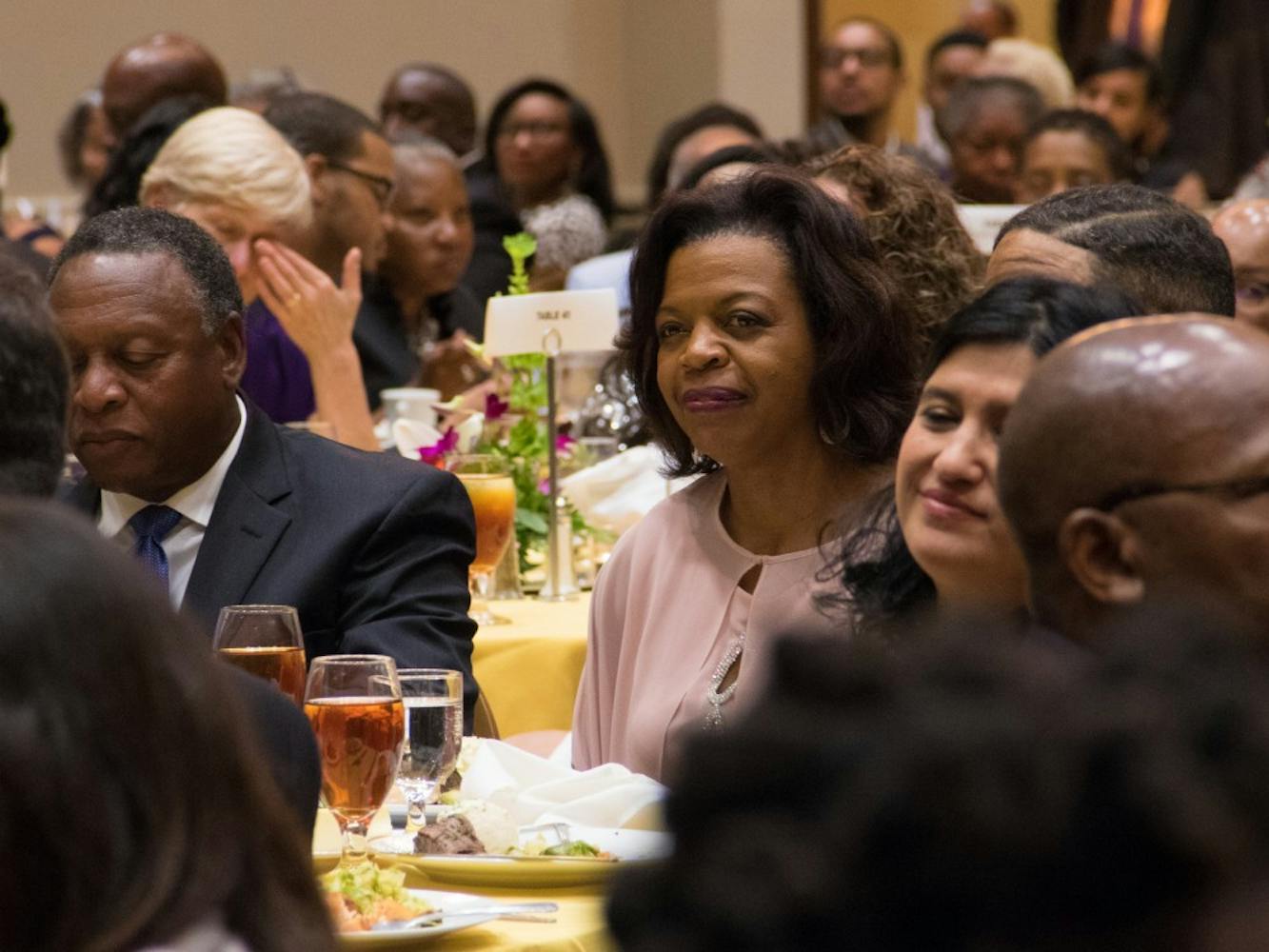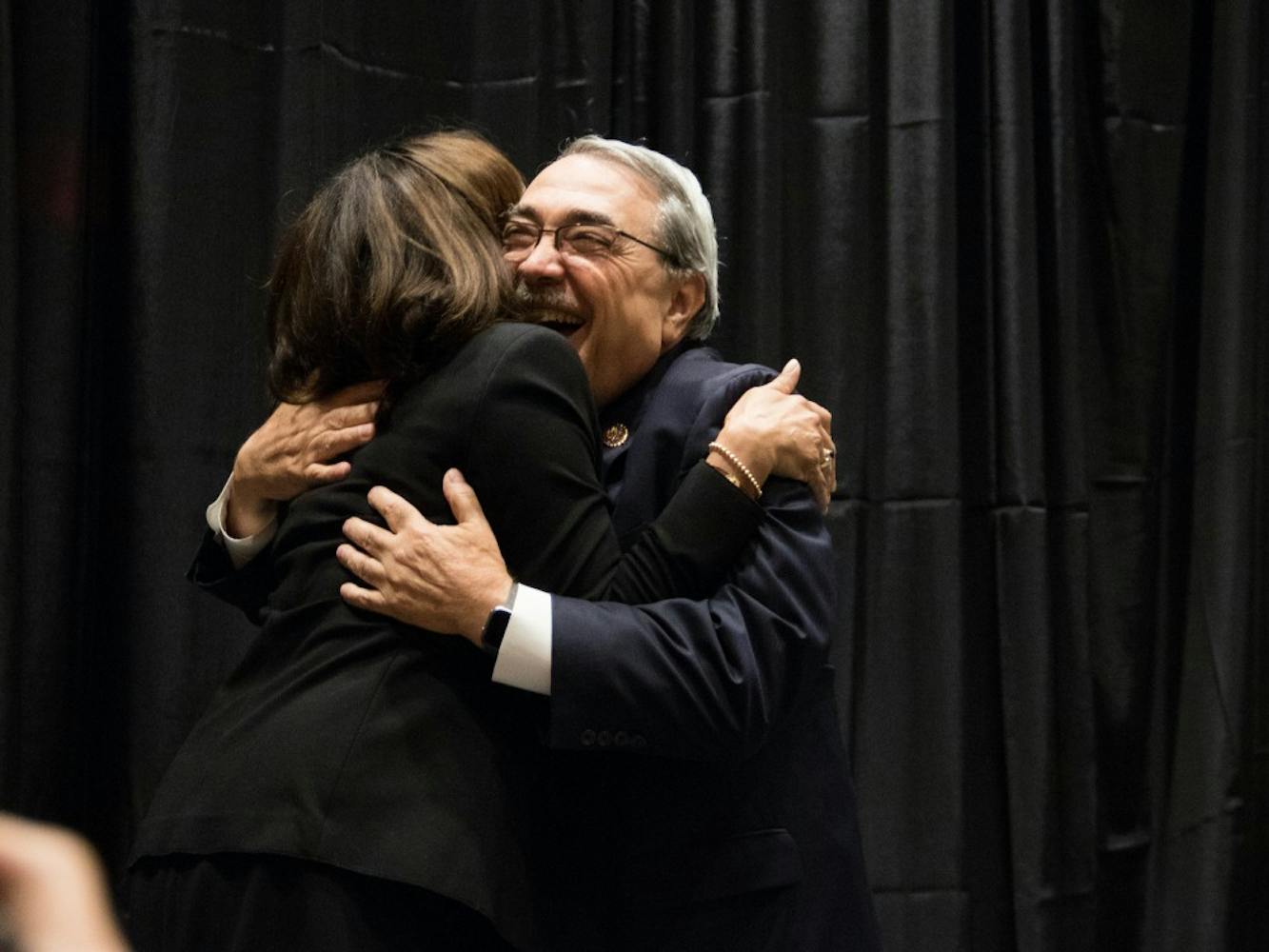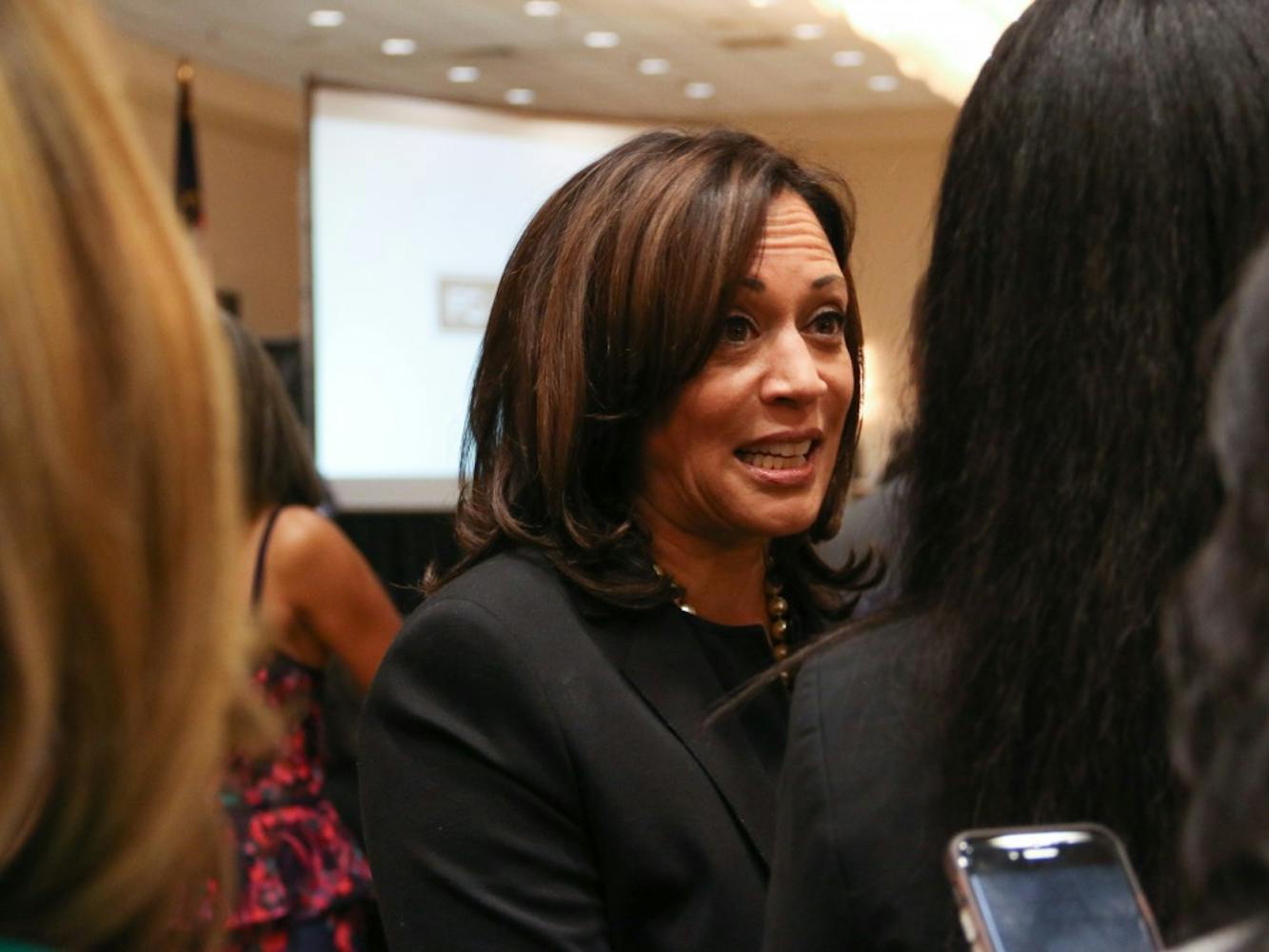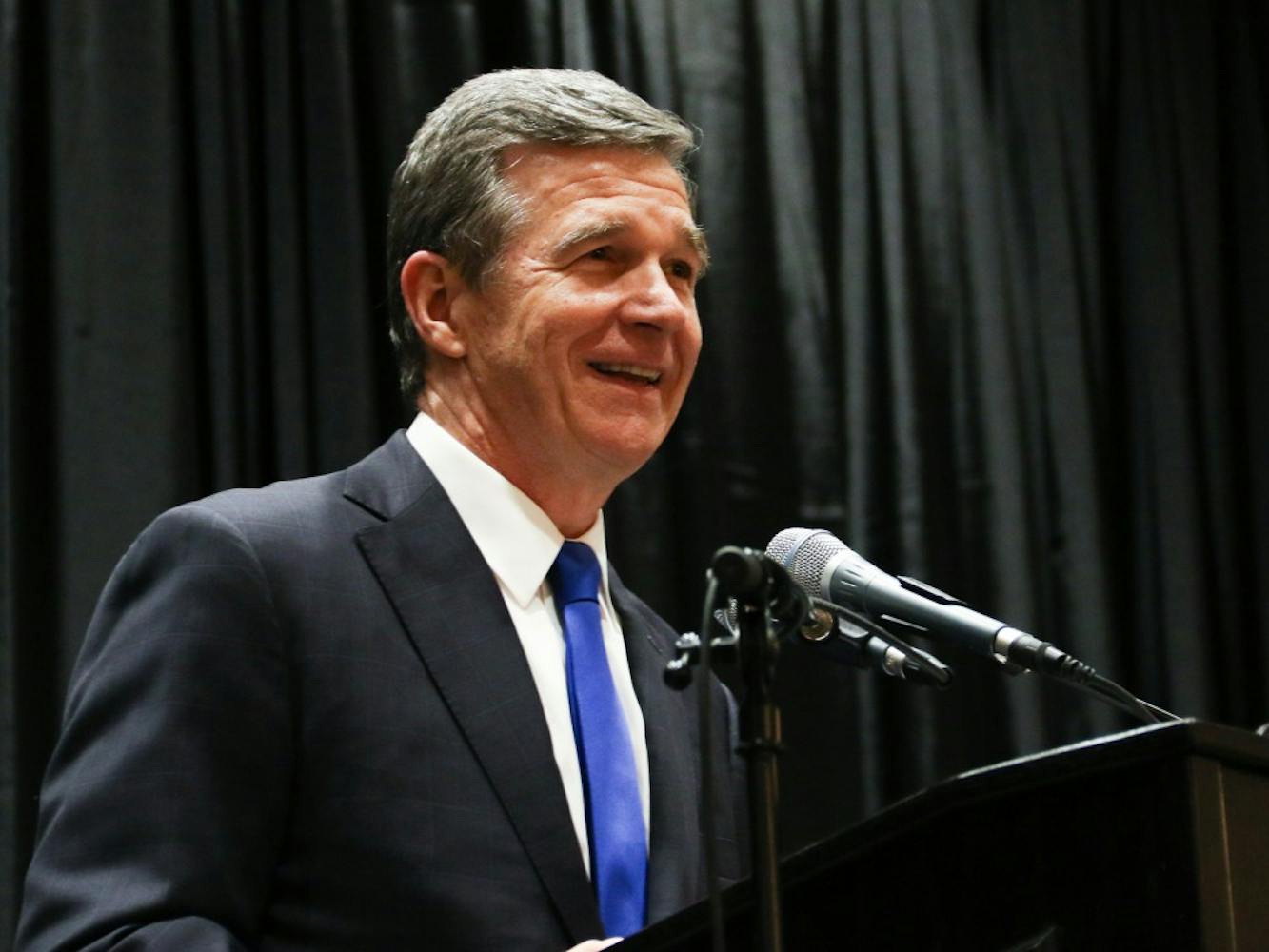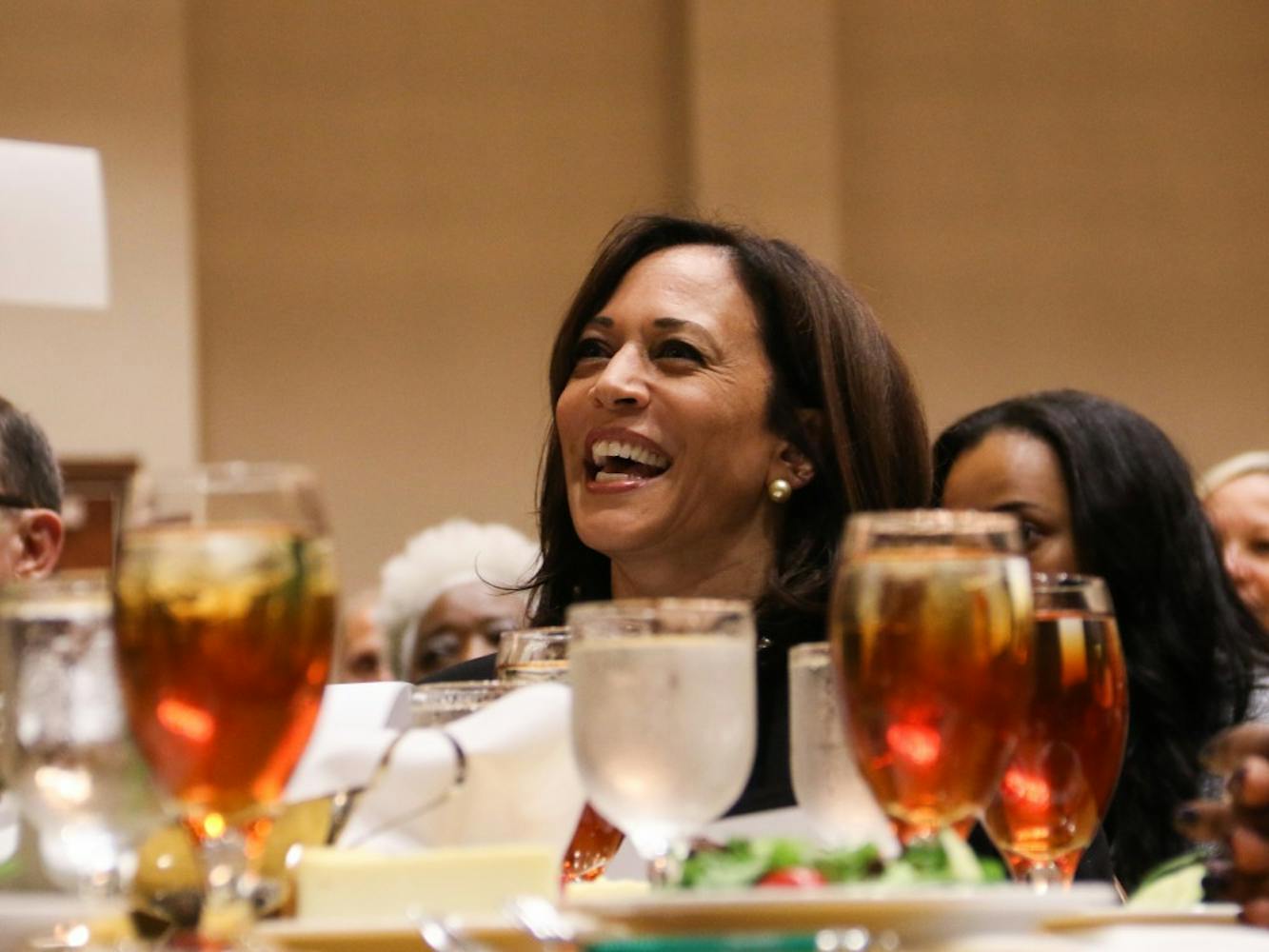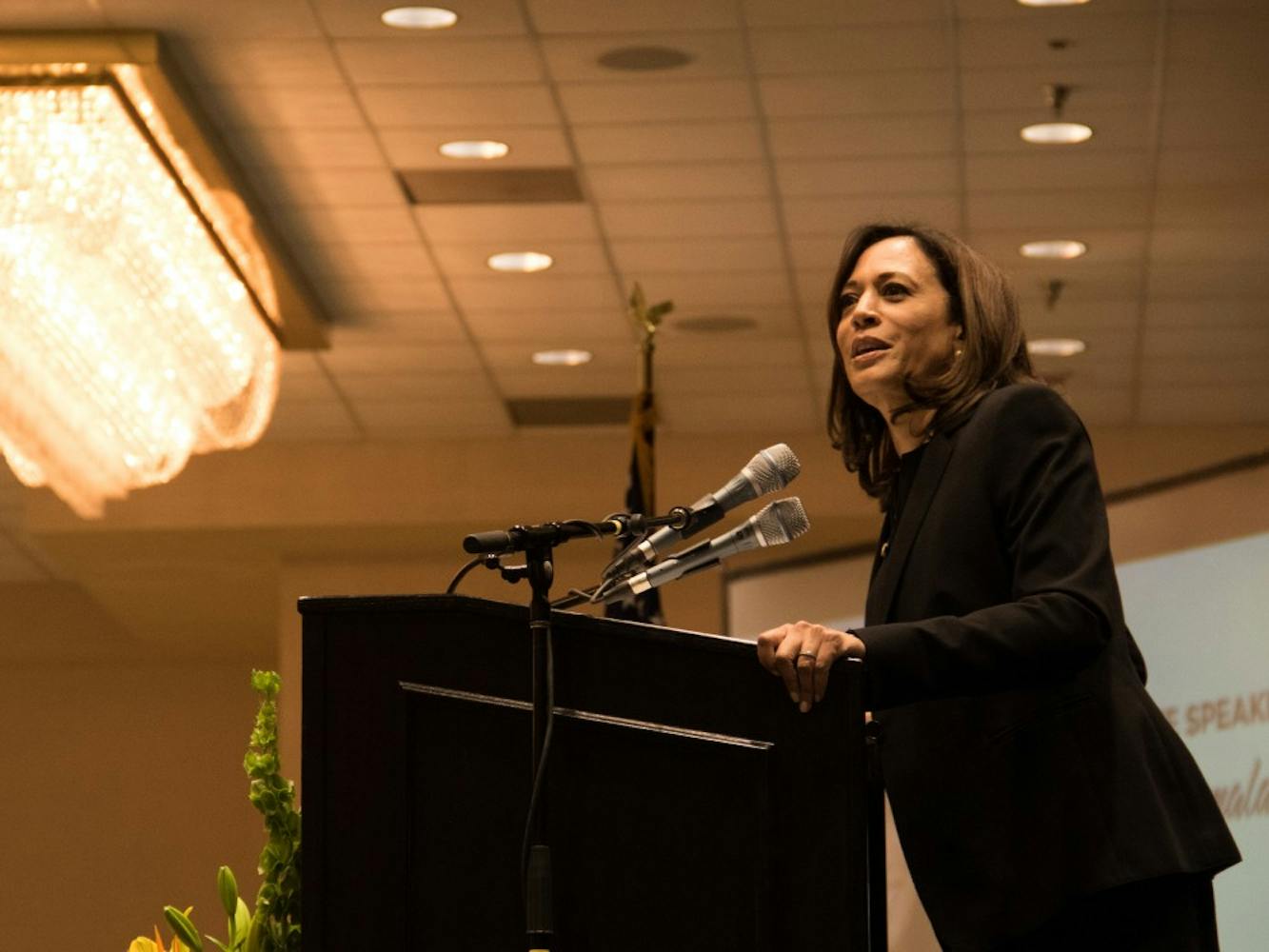“Who are we?” asked Democratic Party presidential candidate Kamala Harris at a Saturday banquet in Durham, as she said it was necessary at this current moment to look in the mirror and reflect on the “history of our country.”
Sen. Harris (D-CA) said that those in attendance at the Durham Committee on the Affairs of Black People’s Founders’ Day Banquet know one component of the answer: “we are better than this.” Harris, the keynote speaker, was elected in 2016 as the second black woman and the first South Asian American woman to serve as a U.S. senator.
“For 84 years, this committee has fought for a more just and more equal Durham but also a more just and more equal America,” Harris said. “This committee helped elect Durham’s first black members to the city council and the school board, worked to integrate everything from city schools to the Durham Bulls and fought for equal opportunity.”
Protestors of the event gathered outside of the Durham Convention Center, where the banquet was held, to bring awareness to Harris’ criminal justice record as San Francisco’s district attorney and California attorney general. At the #KamalaNotKin rally, one of the banners read, “Invest in our community. Stop the Cops. #FundBlackFutures.”
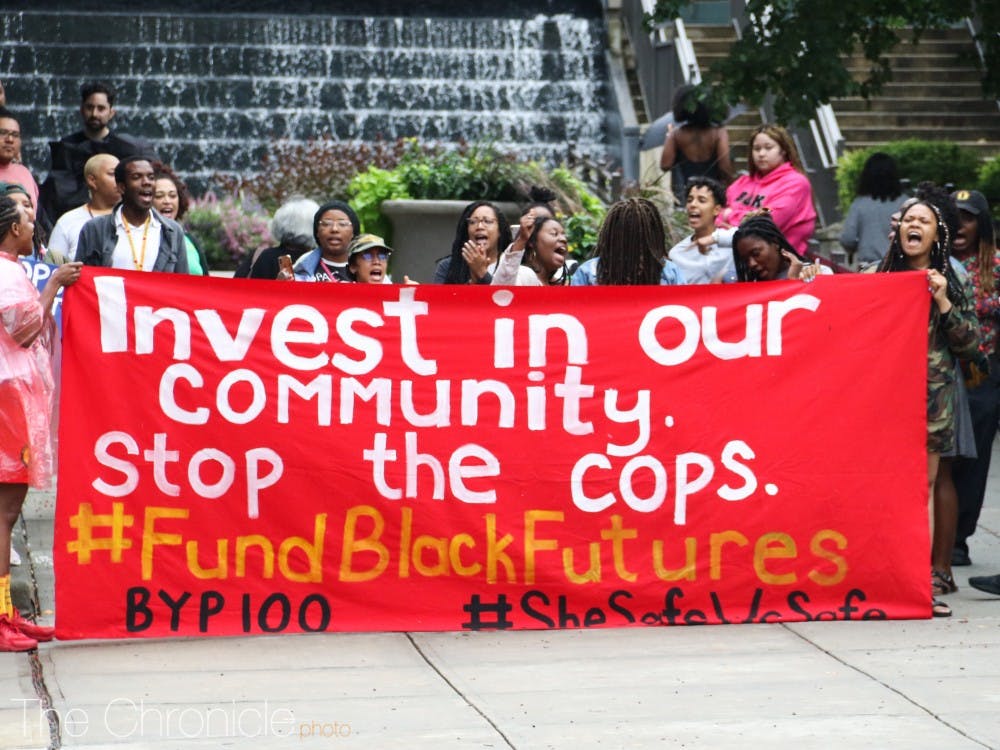
North Carolina politicians like Mayor Steve Schewel, Trinity '73 and Ph.D. '82, Gov. Roy Cooper and Rep. G.K. Butterfield (D-NC) were also in attendance at the event. Some had personal connections to Harris: Cooper served as the Attorney General for North Carolina as Harris served in the same position in California.
Butterfield introduced Harris, the keynote speaker, and expressed his gratitude for her presence at the banquet.
“When she speaks her colleagues listen—at least most of them,” Butterfield said. “We are proud that she is showing America and the world that African American women can excel and lead this great nation.”
Noting that the committee is one of “leaders who understand the fight that we have is an ongoing fight,” Harris said that the current moment’s fight isn’t new. As the daughter of parents active in the civil rights movement of the 1960s, she said she would not be able to be a senator nor a serious presidential candidate without the ongoing fight for civil rights, and specifically pointed to the work of the Durham committee.
For the past two years, she said conversations on civil rights, and specifically race, have shifted from mentioning the long-used phrase “the race card” to “identity politics.”
She pushed back on the new term, as it’s used to “marginalize the subject in a way that I believe is meant to say ‘hush’ in a way that sometimes is meant to say ‘shut up,’” Harris said.
“When we talk about how our country is and where we are on civil rights issues, it is not identity politics in the way that they try to phrase it where America stands on core issues of civil rights. It’s about America’s identity,” Harris said.
Instead, discussions should be centered on “truth and fact” when discussing the identity of the United States, Harris said. Issues like the racial wealth gap, maternal mortality and equal opportunity for education are integral to America’s identity, she explained.
“We must collectively address the fact that black families have just $10 of wealth for every $100 of wealth held by other families. It is a matter of America’s identity,” Harris said. “We know that black women are three to four more times likely to die in childbirth as compared to other women. It is a matter of America’s identity.”
Harris said that in addition to asking “Who we are?” “For whom?” must also be answered to properly understand the context of current challenges.
President Donald Trump ran his 2016 campaign on the slogan of “Make America Great Again,” but Harris argued that the nation shouldn’t return to the ways of times before rights protections that came with legislation and court cases like the Voting Rights Act, the Fair Housing Act, federal minimum wage and Roe v. Wade.
In contrast, Harris is running for president to “turn the page.”
“After turning the page, the test before us as leaders is to write the next chapter and to write the next chapter in the America that we believe in,” Harris said.
To fulfill the promise of home ownership for four million black families, she proposed investing $100 billion for families in “historically redlined communities or in federally subsidized housing.”
As home ownership is intertwined with intergenerational wealth transfers, Harris believes that these investments are integral to addressing the racial wealth gap. Families who want to invest in their children’s education and entrepreneurship often take assets out of their home to avoid taking out loans.
“Intergenerational wealth based on home ownership is connected with the existence and fact of the racial wealth gap as a reflection of America’s identity and then talking about building the America that we believe in and writing the next chapter,” Harris said.
At the banquet, the committee also annually honors two members of the Durham community for their significant impact, and the 2019 honorees were Elaine O’Neal, interim dean of the North Carolina Central University School of Law, and former mayor Bill Bell.
Harris applauded Bell’s influence on Durham as the city’s former mayor, as “many may not be able to see what leadership looks like until they see a leader” like him.
O’Neal has shattered boundaries, Harris said, since she was the first woman to be the Chief District Court Judge in the North Carolina District Court and the first woman to be Superior Court Judge for Durham County. Her “extraordinary force” reminded Harris of something her mother used to tell her: “Kamala, you may be the first to do many things, but make sure you are not the last.”
The presidential candidate said she knew she was speaking to a “committee of leaders who understand the fight that we have is an ongoing fight.” The fight to attain the “noble ideas” the United States was founded upon was “born out of optimism,” Harris said, and it was “born out of knowing, believing and having faith in what can be, unburdened on what has been.”
“This is a fight for the soul of our country,” Harris said. “This is a fight born out of love. This is a fight we’re going to win.”
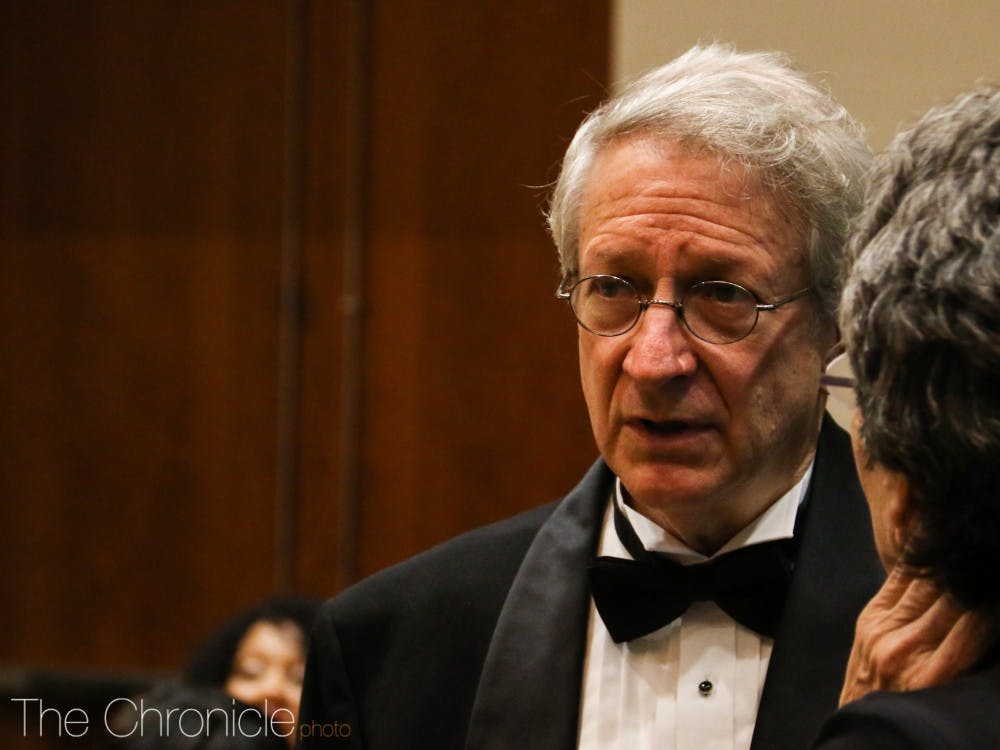
Get The Chronicle straight to your inbox
Signup for our weekly newsletter. Cancel at any time.

Stefanie Pousoulides is The Chronicle's Investigations Editor. A senior from Akron, Ohio, Stefanie is double majoring in political science and international comparative studies and serves as a Senior Editor of The Muse Magazine, Duke's feminist magazine. She is also a former co-Editor-in-Chief of The Muse Magazine and a former reporting intern at PolitiFact in Washington, D.C.

